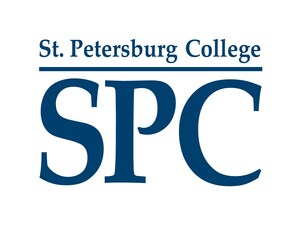St. Petersburg College and partners leading the charge to address nursing shortages
ST. PETERSBURG, Fla., Jan. 3, 2022 /PRNewswire/ -- Florida is facing a critical nursing shortage and St. Petersburg College (SPC) and its partners are taking a solutions-based approach to fixing the problem.
A spring 2021 survey by the Florida Hospital Association found that one out of four registered nurses and one out of three critical care nurses had left their jobs in the previous year. It also noted a 25 percent turnover rate, the highest over the past several years, and a projected deficit of 59,100 nurses in Florida by 2035.
To address the issue, SPC recently gathered more than 50 regional stakeholders - including leaders from hospitals, education institutions, nursing associations and government officials - to discuss solutions to problems contributing to the decline.
Taking Action to Address the Critical Nursing Shortage in Tampa Bay was hosted by St. Petersburg College, Pasco-Hernando State College, State College of Florida and Hillsborough Community College.
"Everyone has been having solo discussions on how to address the nursing shortage," said Dr. Louisana Louis, Dean of SPC's College of Nursing. "This allowed us all to be in one room. It had not been done this way before, and that made all the difference."
According to the U.S. Bureau of Labor Statistics, job growth for nurses in Florida is expected to grow by 21 percent, while 40 percent of nurses will approach retirement age in the next decade. Stressful working conditions caused by the pandemic are also creating an increase in turnover.
"In the middle of 2021, we asked hospitals to report vacancies and turnover," said Cheryl Love, Chief Clinical and Patient Safety Officer at Florida Hospital Association. "Overall, there was an 11 percent RN vacancy rate in Florida over 12 months, which is higher than the national rate of 9.9 percent. We need to add more (nurses) than a couple thousand per year to mitigate the projected workforce shortage."
Challenges include: difficulties recruiting and hiring experienced nurses and nursing faculty, often due to low salaries; establishing work environments that promote job satisfaction and loyalty; the need for recurring state funding to address salary issues; and a lack of clinical site access.
Some of the top solutions identified were:
- Increase and allocate recurring funding from the state for educational technology and to raise faculty salaries
- Establish creative scheduling outside the 12-hour scheduling model for nurses to free experienced nurses to teach
- Create dedicated partnerships for clinical experiences
- Re-imagine clinicals to explore alternative experiences and add clinical capacity
- Cultivate student engagement and look at student evaluation methods to ensure they are rigorous, fair and equitable
SPC is already working on some of these ideas. A gift last year from the Hough Family Foundation is allocated to enhance the college's nursing simulation area so students get hands-on training to mirror situations they would see in a live clinical experience.
Another focus is getting more nurses out into the community.
"We are creating a special cohort in the summer for students who were not successful in their last semester to give them another opportunity to graduate early," Louis said. "And we are working on implementing an evening and weekend program within the next year, which will produce more nurses."
SOURCE St. Petersburg College

WANT YOUR COMPANY'S NEWS FEATURED ON PRNEWSWIRE.COM?
Newsrooms &
Influencers
Digital Media
Outlets
Journalists
Opted In





Share this article